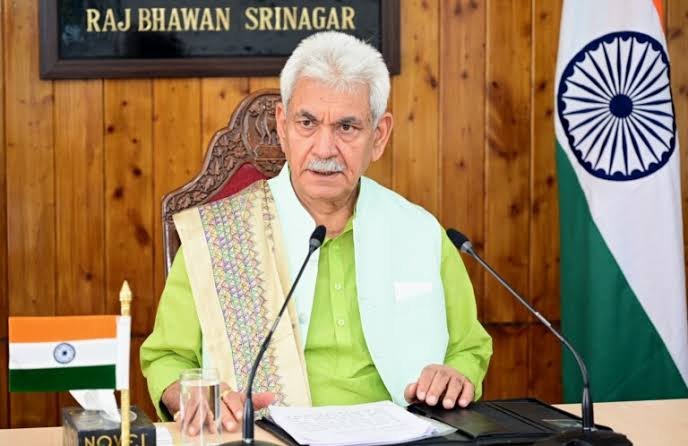By Asif Iqbal Naik
Srinagar, Oct 30: The Jammu and Kashmir administration on Wednesday ordered the dismissal of two government teachers from service for their alleged involvement in activities prejudicial to the security of the State.
According to an official order issued by the General Administration Department (GAD), Ghulam Hussain, a teacher in the School Education Department hailing from Kalwa Mulass in Tehsil Mahore of Reasi district, and Maajid Iqbal Dar, a teacher from Kheora, Rajouri, have been removed from service with immediate effect under Article 311(2)(c) of the Constitution of India.
The order states that the Lieutenant Governor, after careful consideration of the facts and material available on record, was satisfied that it was not expedient to hold an inquiry in the interest of the security of the State. The two employees were consequently dismissed from government service without a departmental inquiry.
The latest action reaffirms the J&K administration’s zero-tolerance policy towards any form of association of public servants with organizations or individuals involved in activities undermining peace, sovereignty, and integrity of the nation.
⸻
Part of a Continuing Crackdown
The dismissal of Hussain and Dar is part of a broader, ongoing crackdown initiated by the J&K administration to weed out employees with alleged links to terror networks or over-ground worker (OGW) groups operating in the Union Territory.
Since 2021, more than 75 government employees have been dismissed from service under Article 311(2)(c), which empowers the government to terminate a public servant without an inquiry if deemed necessary for reasons of national security.
In April 2025, two government employees—Ishtiyaq Ahmad Malik, a senior assistant in the Public Works Department, and Basharat Ahmad Mir, a police wireless operator—were dismissed over alleged links with the proscribed outfit Hizbul Mujahideen.
Later, in June 2025, three more employees, including a police constable, a teacher, and a junior assistant in a medical college, were sacked for alleged links with Lashkar-e-Taiba and Hizbul Mujahideen.
Similarly, in August 2025, two employees from north Kashmir’s Kupwara district — Khurshid Ahmad Rather, a teacher, and Siyad Ahmad Khan, an assistant stockman in the Sheep Husbandry Department — were terminated on allegations of aiding infiltration and arms smuggling for LeT operatives.
⸻
Legal Framework and Policy
Under Article 311(2)(c) of the Indian Constitution, a government employee can be dismissed from service without an inquiry if the competent authority is satisfied that holding such an inquiry is not feasible in the interest of the security of the State. The provision is invoked only in exceptional cases involving serious security concerns.
Officials said the dismissals are based on comprehensive intelligence inputs from multiple agencies, including the CID, police, and central intelligence organizations. The Lieutenant Governor’s office has repeatedly emphasized that the measure targets only those with proven links to terror or anti-national activities and not ordinary dissent.
⸻
Wider Implications
The administration’s drive aims to dismantle the ecosystem of sympathizers and facilitators that has long supported militancy in Jammu and Kashmir. Sources said several employees under surveillance are being scrutinized for suspected OGW connections, social media activities, and participation in events deemed anti-national.
Senior officials maintain that government service is incompatible with actions that compromise national security, asserting that “public servants are expected to uphold the sovereignty of the nation and maintain the integrity of the administration.”
The move also underscores the administration’s determination to cleanse the government machinery of elements allegedly acting as “enablers” for militant organizations, ensuring that state institutions remain free from any influence that could threaten internal peace or public order.
⸻
Background
The crackdown on employees with alleged terror links intensified after the formation of a Special Committee for Identifying Anti-National Employees in 2021, following a series of targeted killings and intelligence reports suggesting the infiltration of sympathizers within government departments.
The committee—comprising senior officials from the Home Department, police, and intelligence agencies—was tasked to recommend dismissals under Article 311(2)(c) based on credible inputs and verified evidence.
⸻
Conclusion
The dismissal of Ghulam Hussain and Maajid Iqbal Dar marks the latest in a series of stringent actions by the J&K administration to secure the Union Territory from internal threats. With over seventy-five dismissals so far, the move highlights the government’s continued commitment to uphold law, order, and the security interests of the region.

